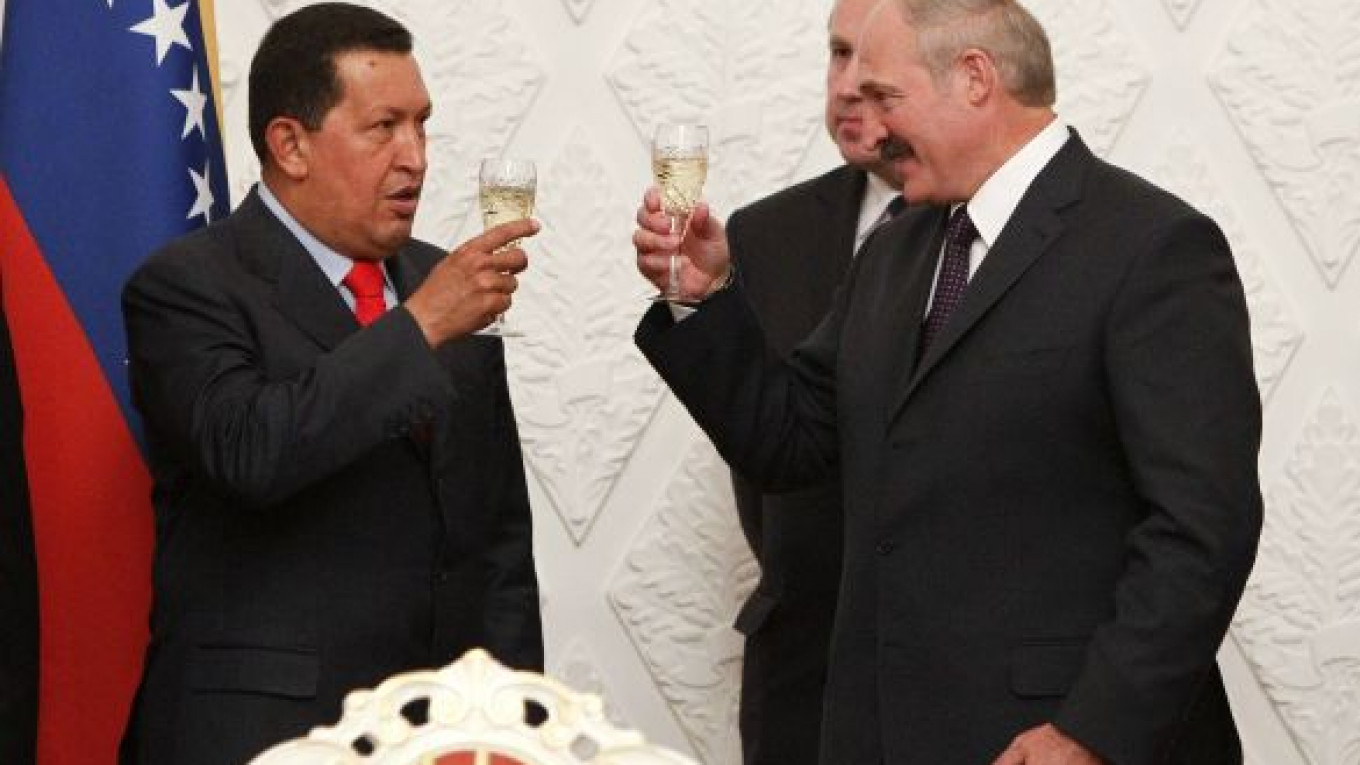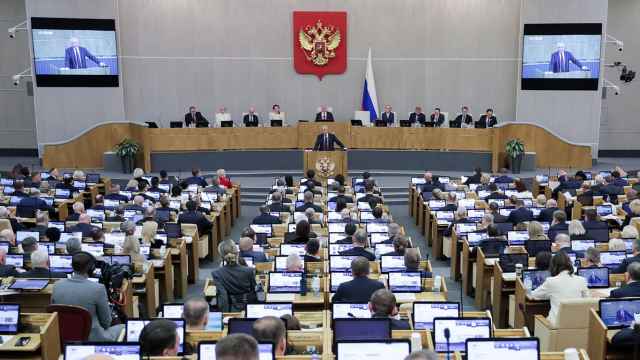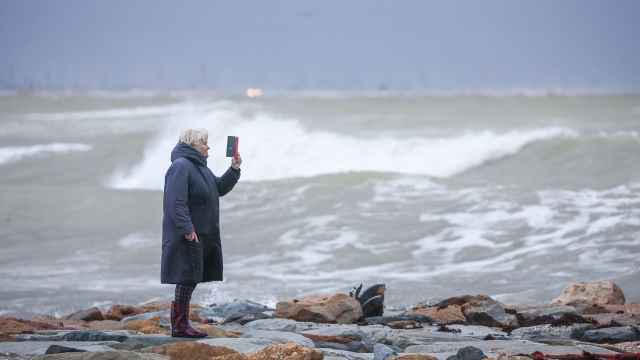MINSK — Venezuelan President Hugo Chavez agreed Saturday to supply Belarus with 30 million metric tons of oil over three years from 2011 in a deal worth as much as $19.4 billion.
Belarus has slashed imports of Russia's Urals blend and increased purchases from Venezuela since Moscow imposed export duties, a step that raised the price for Minsk by about 36 percent.
"Belarussian refineries will have no shortages for the next 200 years," Chavez said after more than seven hours of talks with his Belarussian counterpart, Alexander Lukashenko, in Minsk.
"We are proud of the fact that our vessels can supply our oil to Belarus," Chavez added after officials from Venezuelan state oil company PDVSA and the Belarussian Oil Company signed the accord.
Neither side disclosed the price tag for the deal. But state statistics show Belarus is now buying Venezuelan crude for $647 per ton, pricing 30 million tons at about $19.4 billion.
That is a major boon for Belarus, whose gross domestic product is just $55 billion. Belarus refines crude from Russia and Venezuela and then sells the products on to European Union customers, representing a large chunk of its national economy.
"I thank you not only for the oil but for the colossal help that you have given to the Belarussian people," Lukashenko told Chavez. "At this difficult time, you have given Belarus your shoulder to lean on."
Lukashenko visited Venezuela in March in an effort to secure energy supplies after Russia, the country's main supplier, drastically cut the flow of cheap crude. Lukashenko has repeatedly attacked Moscow for cutting the energy subsidies.
Relations between the two former allies deteriorated further after Minsk gave refuge to a former Kyrgyz leader criticized by Moscow and threatened to cut Russian oil and gas transit to Europe in a gas pricing dispute in June.
Still, Belarussian statistics show that the Urals blend is cheaper — at $419 per ton at the end of August — than Venezuela's Santa Barbara crude.
Russia agreed Friday to help build Venezuela's first nuclear power plant, sell it tanks and buy $1.6 billion of oil assets, reinforcing ties with Chavez, who shares Moscow's opposition to U.S. global dominance.
Belarus' Mozyr refinery receives Venezuelan imports by rail from ports on the Baltic and Black seas.
But Belarus has plans to reverse a part of the Europe-bound Druzhba pipeline to allow greater volumes of Venezuelan crude to reach Belarus from Odessa.
Belarus plans to test the U.S. and Asian debt markets, as well as selling ruble-denominated bonds, as the government seeks to wean itself off international aid and sustain economic growth, a senior official said Friday.
“We will undoubtedly enter the Asian and the American markets,” Finance Minister Andrei Kharkovets said in an interview in Moscow, declining to comment on the timing of possible sales.
Belarus is selling state-owned companies and eurobonds to help meet its financing needs after saying it will not seek additional loans from the International Monetary Fund. The IMF agreed to loan Belarus $2.5 billion in December 2008 after export revenue tumbled during the global financial crisis.
The economy is expected to grow 7.2 percent this year and 6.2 percent in 2011 after expanding 0.2 percent last year, according to the IMF.
(Bloomberg)
A Message from The Moscow Times:
Dear readers,
We are facing unprecedented challenges. Russia's Prosecutor General's Office has designated The Moscow Times as an "undesirable" organization, criminalizing our work and putting our staff at risk of prosecution. This follows our earlier unjust labeling as a "foreign agent."
These actions are direct attempts to silence independent journalism in Russia. The authorities claim our work "discredits the decisions of the Russian leadership." We see things differently: we strive to provide accurate, unbiased reporting on Russia.
We, the journalists of The Moscow Times, refuse to be silenced. But to continue our work, we need your help.
Your support, no matter how small, makes a world of difference. If you can, please support us monthly starting from just $2. It's quick to set up, and every contribution makes a significant impact.
By supporting The Moscow Times, you're defending open, independent journalism in the face of repression. Thank you for standing with us.
Remind me later.






